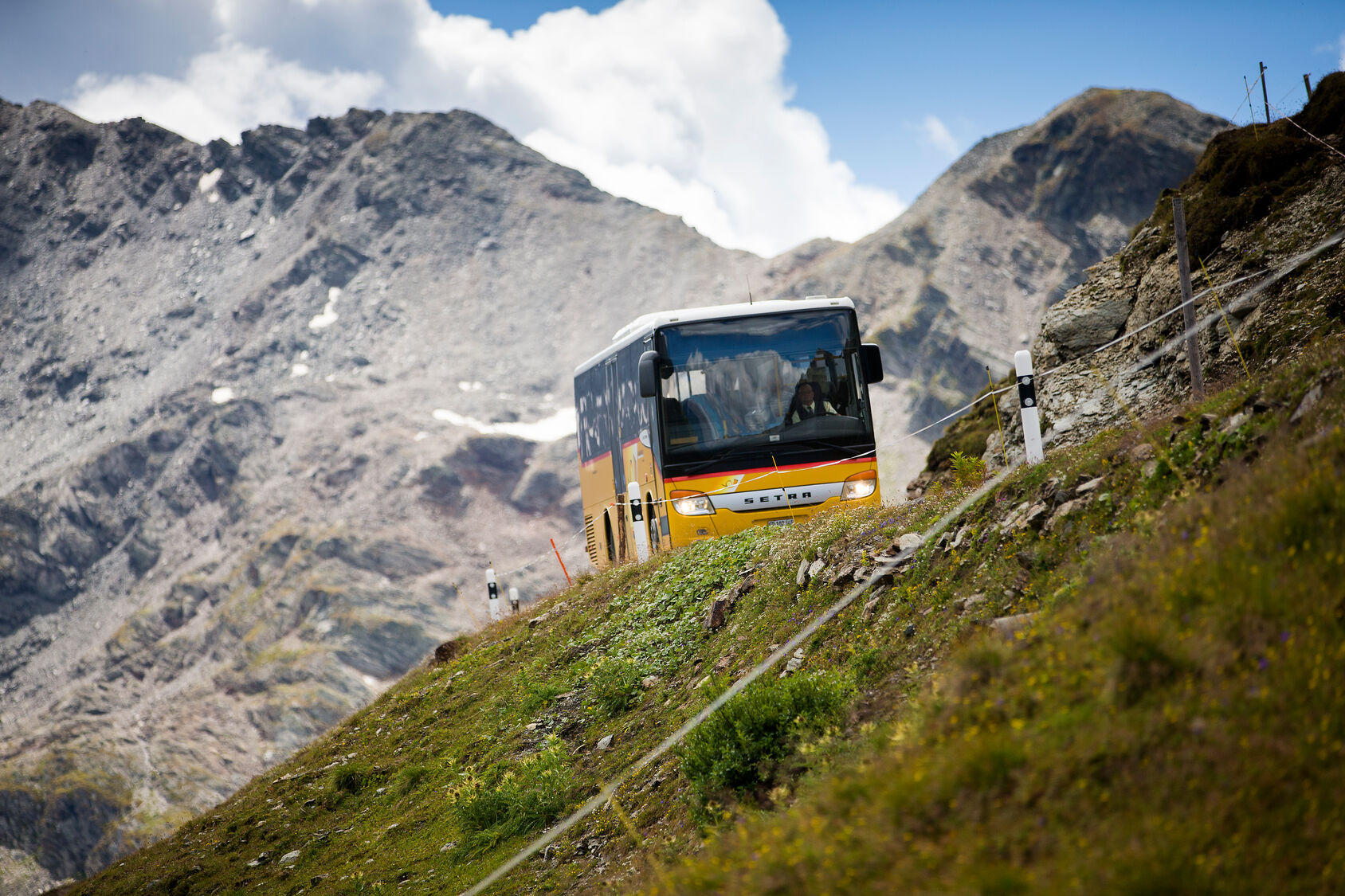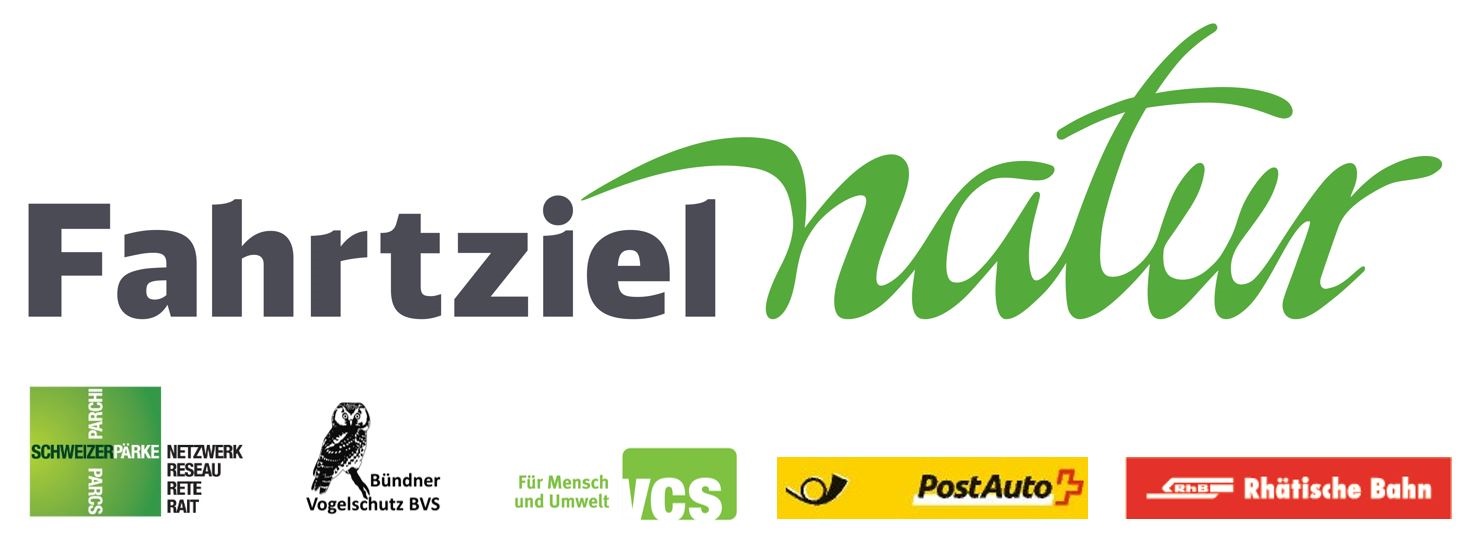Case Study
Destination nature – promoting sustainable mobility and slow tourism
Contact name
Elisa Strecke
Institution name
Swiss Parks Network
Region & country
Graubünden, Switzerland
Summary
Destination nature encourages visitors to travel and discover the Swiss National Park, the Parc Ela, the Beverin Regional Nature Park, the Biosfera Val Müstair and the UNESCO World Heritage Swiss Tectonic Arena Sardona in an environmentally friendly way by using public transport.

Fahrtziel Natur
Amt für Naturgefahren Graubünden
Background of the project
The idea of Destination nature has been a huge success in Germany: The cooperation was started in 2001 by the environmental associations BUND, NABU and VCD, as well as the Deutsche Bahn. Owing to the cross-border cooperation between the Swiss Parks Network and Fahrtziel Natur Germany the initiative was widened to the pilot region of Graubünden.
– To create attractive offers so that guests can arrive and use the public transport in the region.
– To increase the capacity utilisation and offers on certain routes.
– To expand cooperation with public transport and environmental partners and the FZN Germany initiative.
Solution and actions taken
Sustainable mobility and soft tourism are at the centre: leave your car behind for the next trip and do your share to promote sustainable and conscientious travelling – that is the only way that the diversity of the landscape and the different and rare animal and plant species have a future.
Destination nature creates and communicates travel packages including attractive public transport prices. Innovative mobility solutions offer flexible and sustainable mobility on site. The “free return ticket” offers to visitors of the Graubünden a one-way ticket, which is also valid for the return journey. The “destination nature package” offers hotel guests in Graubünden parks reduced rates on public transport. “RailAway” offers reduced tarifs on public transport.
Other institutions or parties involved
Swiss Parks Network, ATE Switzerland and the Graubünden Birdlife association together with the Rhaetian Railway and the PostBus
Results
We were able to try out different products and learn from them. The exchange with the public transport partners RhB/PostBus is more institutionalised than before.
Challenges
To develop products that meet the needs of the guests and are logistically feasible. It is a challenge to get the transport partners on board. In some cases, the infrastructure in the parks is lacking to create attractive offers. The initial situation in the various regions, can very much differ, making a joint product development more difficult.
Lessons learned
– Simple products are crucial.
– Great communication efforts are needed to promote this new initiative.
– It helps if all involved parties are convinced of the product and therefore support and communicate it.
– It is also important to keep the administrative workload low.
Contact name
Elisa Strecke
Institution name
Swiss Parks Network
Website(s)
